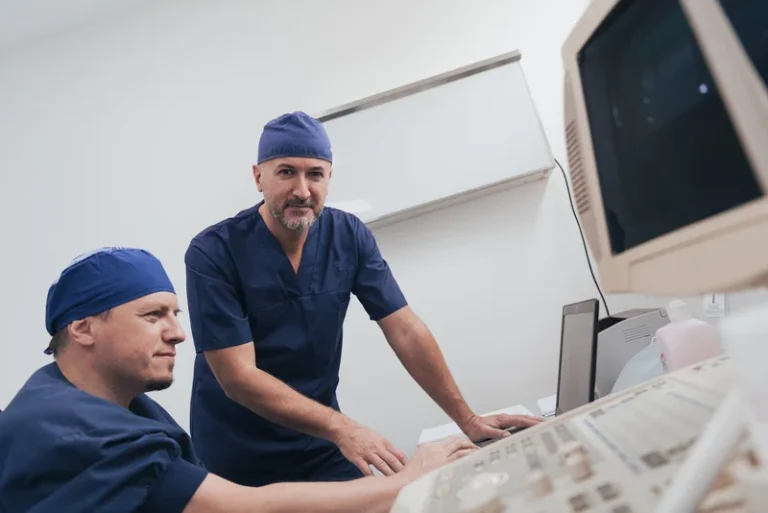
Other types of medications prescribed to lower blood pressure and blood sugar can increase the risk of dehydration, especially when you are not drinking enough fluids. Alcohol can lead to dehydration, but why does alcohol dehydrate you? When we drink alcohol, it gets absorbed into our bloodstream through our stomach but mostly through our small intestines. From there, the alcohol is processed by enzymes in the liver. As the liver breaks down the alcohol, it is converted into a substance called acetaldehyde, which can be toxic in high doses.

Alcohol begins to build up in your bloodstream
Wine also tends to have a higher sugar content, which may further contribute to the dehydrating effects. The key to avoiding dehydration is to pay attention to how your body responds to alcohol. This can increase your BAC significantly if you don’t replenish your body’s supply with a few sips of water as you drink. When its processed by enzymes in the liver, alcohol is converted into a large amount of acetaldehyde. In order to break this substance down and remove it from the body, your liver does most of the work of turning it into acetate. So what can you do to make sure you don’t get that infamous hangover headache caused by dehydration?
- While moderate alcohol consumption may offer some small cardiovascular benefits, the risks of consumption may outweigh these potential benefits.
- One thing to keep an eye on, though, is the alcoholic content of your beer.
- Studies show that an integrated treatment plan tailored to individual needs significantly improves outcomes for those struggling with energy drink addiction.
- While the amount of alcohol you consume is the main determinant of how dehydrated you’ll eventually become, you’re better off starting a drinking session well hydrated as opposed to already dehydrated.
- When a person has very high blood sugar, their body may borrow water from other areas to balance out the volume in the cells.
2. Direct effect of acetaldehyde on neurons in the dipsogenic center of the brain
- While there are a few clear loopholes (non-alcoholic beer still counts as beer), the general consensus would be that most beer does not hydrate you.
- Assessment of energy drink addiction involves self-reporting questionnaires and diagnostic criteria for substance use disorders.
- The social and behavioral consequences of prolonged energy drink consumption include family strain, impaired social relationships, increased impulsivity, and aggression.
- Your liver is responsible for metabolizing alcohol, and heavy drinking over long periods can lead to irreversible damage.
- Alcohol has long held a prominent place in many societies and cultures.
Consuming alcohol leads to dehydration and can affect several systems and functions in the body. It is important for a person to be aware of the signs and symptoms of alcohol-induced dehydration and the ways to avoid it. Chronic heavy drinking can result in high blood pressure, which is a leading cause of kidney disease. It can also weaken immunity, increasing a person’s risk of infections. Binge drinking is when a person consumes an excessive amount of alcohol within a short period of time.
What to do if you’re dehydrated
- Alcohol consumption lowers your sodium levels, primarily because of low solute (protein and salt) intake as compared to free water intake.
- Just five cups of coffee, or 200mg of caffeine, is enough to cause these effects, supporting the link between excessive caffeine in energy drinks and psychosis.
- It is concluded that although energy drink may have beneficial effects on physical performance, these products also have possible detrimental health consequences.
Health professionals assess the frequency of consumption, the presence of withdrawal symptoms, and the impact of energy drink use on physical and mental health. In some cases, psychological assessments are used to evaluate the extent of dependence and related behaviors. A recent study (53) evaluated the acute effects of energy drinks on exercise performance in 19 professional female volleyball players. The players were recruited in a double blind, randomized, crossover study to determine grip strength, vertical jump and anaerobic power during three sessions. For each performance test, there was no significant change indicating that energy drink had no effect on improving physical performance.

In the present review, thirst sensation and oral dryness after alcohol drinking or administration are differentiated. In addition, the nucleus accumbens is important for electrolyte balance 64. Comparatively high doses of EtOH decreased the firing rates of dopaminergic neurons in the ventral tegmental area, whereas low doses of EtOH had the opposite effect 65, 66.

The best way to ensure proper hydration is to drink plenty of water. Alcoholic beverages such as beer, wine, and liquor increase urine output and could cause dehydration if consumed in large amounts. Caffeinated energy drinks may also contain ingredients that increase urine production and contribute to dehydration. To cope with energy drink withdrawal, it’s helpful to use gradual reduction, stay well-hydrated, and practice mental strategies to manage cravings.
While studies on energy drinks specifically and hair loss are limited, excessive caffeine consumption exacerbates hair loss in individuals predisposed to conditions like androgenic alopecia. The long-term health risks of prolonged energy drink consumption include more severe and chronic health issues, primarily affecting the cardiovascular, metabolic, and digestive systems. According to the FDA, most healthy adults can safely consume up to 400 milligrams (mg) of caffeine daily, which is equivalent to about four cups of coffee, ten cans of cola, or two energy shots.
Alcohol Is Slowly Metabolized by the Body
- Drinks containing high amounts of alcohol, caffeine, and sugar are most likely to perform as diuretics in the body and promote dehydration.
- The beer that the Ancient Egyptians were drinking was hardly going to be full strength if people were drinking 5 litres of it per day.
- Still, enjoying these drinks in moderation and pairing them with other beverages in your diet, such as water, is unlikely to cause dehydration.
- Your pituitary gland produces a hormone called Vasopressin (also known as “anti-diuretic hormone” or ADH).
- It’s widely believed that alcohol exerts its diuretic effect by suppressing a hormone called vasopressin, or ADH 7.
Follow drinking behaviors that are best for you, not what everyone else is doing. And above all, limiting your alcohol consumption in general is the best way does drinking beer cause dehydration to avoid dehydration. A great way to prevent dehydration from alcohol is to make mineral supplements a part of your daily routine.
Some cocktails can take a toll on your hydration because of additional ingredients. “If you pair alcohol with another diuretic substance such as caffeine, you may naturally urinate more and become even more dehydrated,” Dr. Alexa Mieses Malchuk, M.D., a family physician, tells Bustle. So that espresso martini or Irish coffee might end up making you need the bathroom. Drinking a lot of low-alcohol drinks can also add up to a very thirsty evening, though. One standard drink, according to American Addiction Centers, should contain around 0.6 ounces of pure alcohol.
